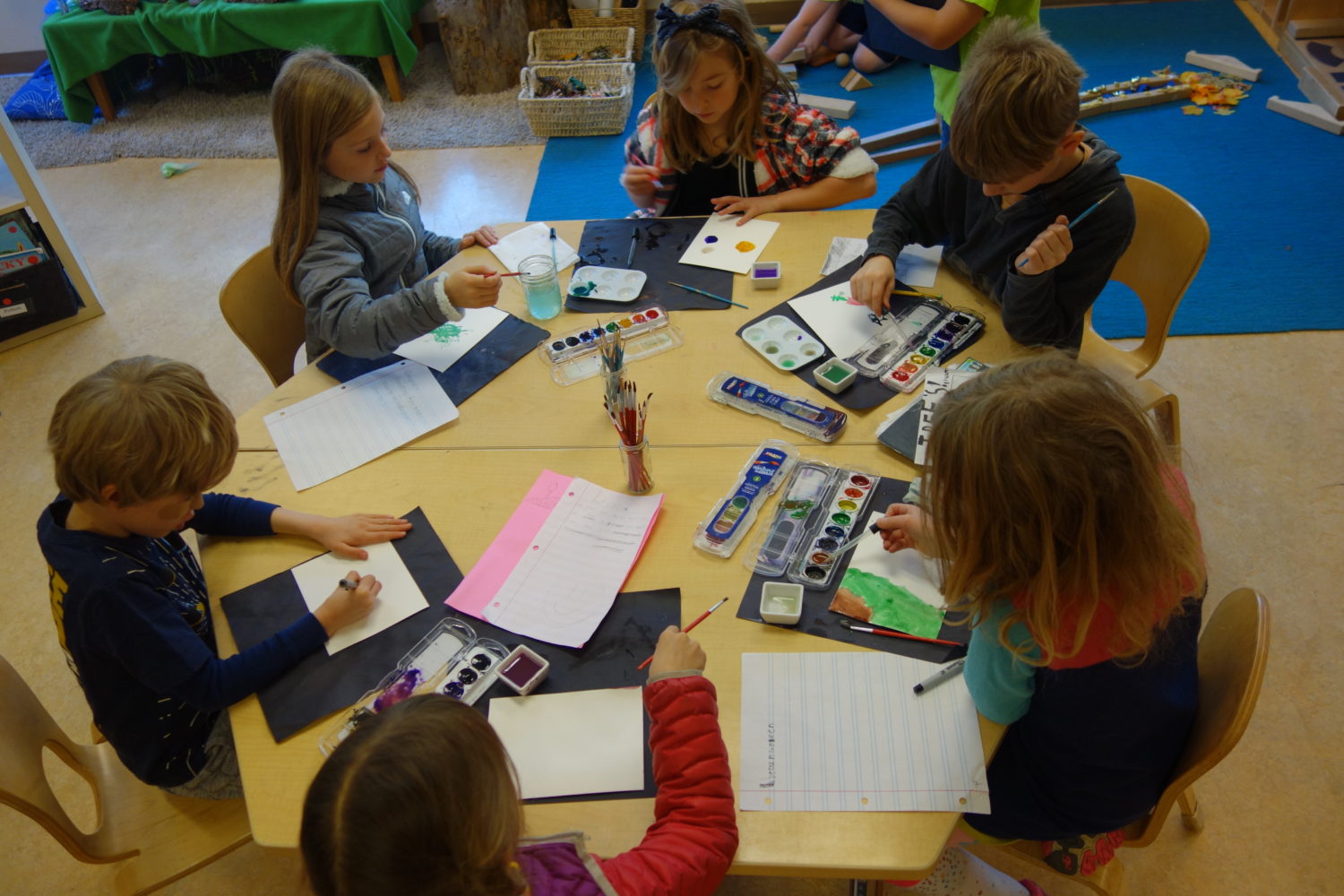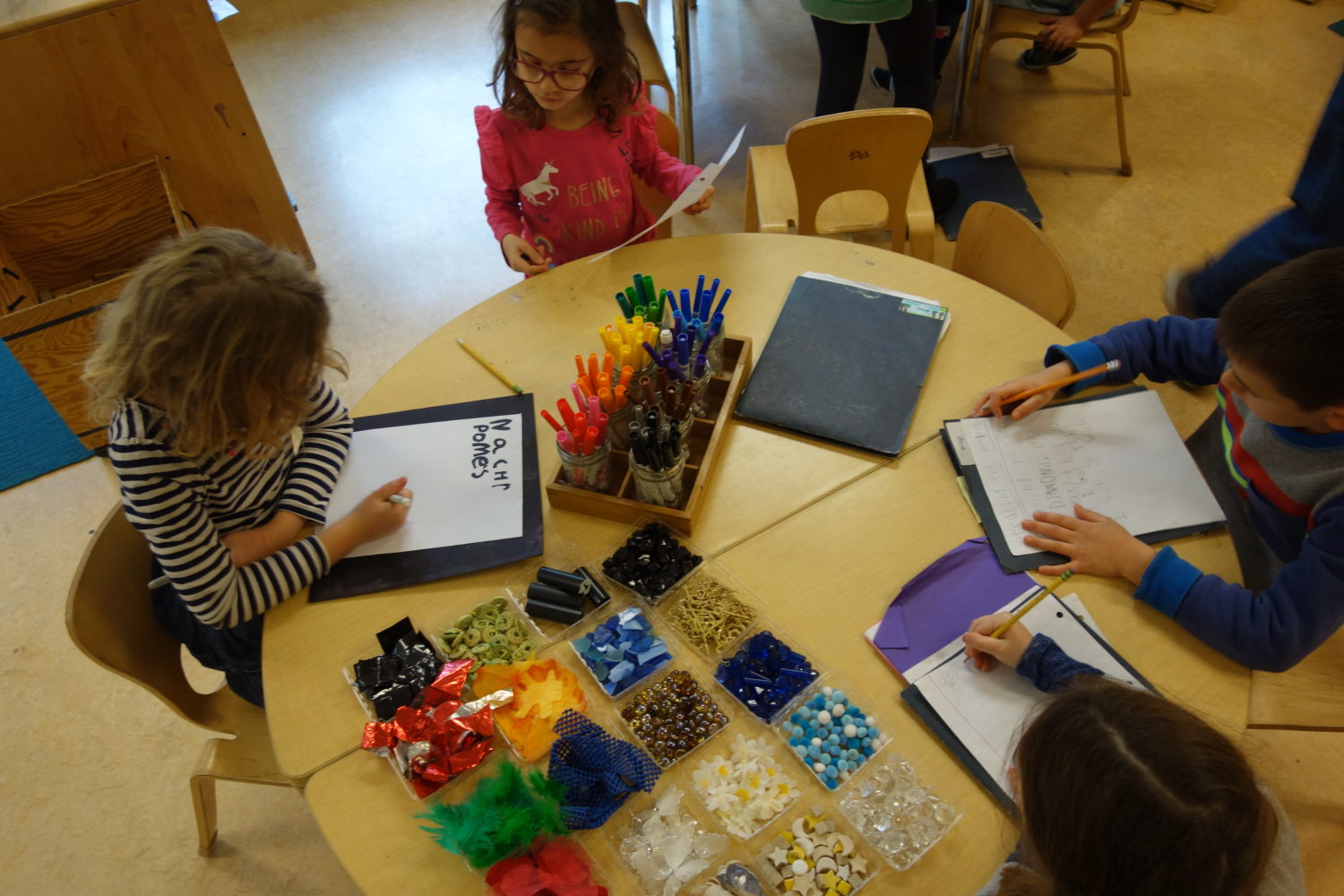Developing a reflective practice

Story Workshop began at Opal School many years ago with teachers and children working together to research the question, What is the relationship between literacy and the arts? Over a decade later, this question continues to guide the work we do during Story Workshop.
When I was first learning about Story Workshop, I remember how surprised I was by the level of engagement, care, and investment the children had for their writing. The role of materials and play seemed to create conditions to support these young writers in ways I hadn’t experienced before. This observation led to my own early understanding of the relationship between materials and writing: that it existed, and it was strong. It seemed like just having materials available to the children as they created stories made space for a kind of engagement that I hadn’t seen before.
And it probably did. But I think the beauty in a question like “What is the relationship between literacy and the arts?” is in the way it has space for unlimited possibilities. Stopping my research after that initial surprise – or feeling like I had it figured out – would have closed off any opportunity for new understanding, learning, or growth. But this question is big enough that it invites us to reflect on the experiences we’ve had as we return to it time and time again. This practice of reflection (and assumed uncertainty) is what leads to deeper understanding and more questions.
When I think back to that initial observation about the relationship between literacy and the arts (“that it exists, and that it’s strong”), I see a surface level understanding. Time and a practice of reflection have supported me to dig deeper, move beyond my first thought, and develop new understanding. One way my thinking has changed is that I no longer feel like it’s enough to just put some materials out during Story Workshop. I have seen my own ideas for what is possible for children as writers expand over time when I make time during Story Workshop for the children to engage in the same reflective practices that have supported me. Because of this, a typical Story Workshop practice includes time for the children to reflect on their process as writers.
 Recently, after the first- and second-grade children in Dogwood had spent many days immersed in reading and writing poetry, I asked them to choose one of the poems that they had already written and take it to a material to research what would happen to their idea if they painted or sculpted or built it.
Recently, after the first- and second-grade children in Dogwood had spent many days immersed in reading and writing poetry, I asked them to choose one of the poems that they had already written and take it to a material to research what would happen to their idea if they painted or sculpted or built it.
At the end of Story Workshop that day, they were asked to reflect through writing: What happened when you took an idea you had already started to a material?
Here is some of the things they wrote:
Piper: It gave me ideas.
Ava: It helped because I needed a boost for writing.
Savannah: It changed my whole idea.
Sophia: It helped me because I got so many ideas that I do not know which ones to choose. And it gave me so many ideas to write about.
Mason: It got me more ideas.
Caleb: I discovered that it’s really supportive because it gave me a lot of ideas.
Alex: It helped because it inspired me to change my thinking. My idea came to life!
As I look at their reflections I notice that many children are writing that the materials gave them new ideas or supported their writing – and I’m left wondering how. I see similarities between their own initial reflections and my reflections in the beginning of Story Workshop. These initial observations are an important first step in paying attention, and there is more to uncover. Their reflections on how the materials supported their writing is a starting place that we can build on as we engage in more research which will lead to more opportunities to use reflection as a tool for digging deeper beyond that initial thought. As children develop a practice of reflecting, they are strengthening their metacognitive processes. They become more aware of their own intentions and can more clearly articulate what they want to do as writers and why – which will lead to not only deeper understanding of the relationship between materials and writing but also more powerful writing.
Reader, I’m curious:
Where do you see a practice of reflection showing up in your work? What questions are you returning to over time? How has your thinking grown and changed? What questions are you inviting your students to dig deeper into?
